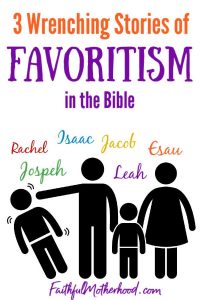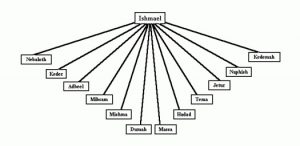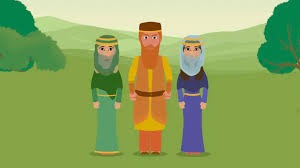Toldois 2020: Rejected Toirah Characters and Their Non-Jewish Wives
by devadmin | November 19, 2020 11:01 pm
 Raboyseyee and Ladies,
Raboyseyee and Ladies,
We begin this week with a shtikel PSA. Long time chaver and recent Ois follower Bernie Fuchs, who spends his days in retirement doing all sorts of chesed, asked that we lead with this and it’s the Ois’s pleasure to do so. May Larry and all others not well, find what they need and may they all have speedy recoveries. Omen!
Please click here to view the full-size page.
Rejected Toirah Characters and Their Non-Jewish Wives
Did our forefathers and foremothers who -in certain documented cases- showed favoritism by choosing one child over another, inadvertently drive their rejected children to marry out? Oy vey! We shall explore that below.
 Lots of action in this week’s parsha, where to begin? So happens that mamish earlier this week, I was having a discussion with a chaver about non-religious children from observant homes and intermarriage. Yikes! And the RBSO is mamish great, is He not! As if on demand, Parshas Toldois discusses mamish that topic. It does? Who married out? To a shiksa mamish? More than one efsher? And the parents reacted how? Did they attend the wedding? Cut the child out of the will? Cut off communications? Reconcile? Let’s find out.
Lots of action in this week’s parsha, where to begin? So happens that mamish earlier this week, I was having a discussion with a chaver about non-religious children from observant homes and intermarriage. Yikes! And the RBSO is mamish great, is He not! As if on demand, Parshas Toldois discusses mamish that topic. It does? Who married out? To a shiksa mamish? More than one efsher? And the parents reacted how? Did they attend the wedding? Cut the child out of the will? Cut off communications? Reconcile? Let’s find out.
Last week: our zeyda Avrohom Ovenu was very concerned that his son Yitzchok should marry someone from Avrohom’s own family, and certainly not a Canaanite. Of concern about whom his first son Yishmoel should marry, we are not told. Did he not care? Let’s recall that Yitzchok, whose bris was performed on day eight, was a nice Jewish boy, or man. He was 37 and still single at the akeyda. We read how Avrohom missionized Eliezer, made him swear while holding his master’s bris (male organ) on the mission’s one goal: He was to find his son Yitzchok, a suitable wife. Avrohom did not want stam azoy a girl, he had his mind set on a particular family. Yitzchok did taka marry Rivka and welcome to Parshas Toldois where Rivka, after twenty years of marriage will give birth to twin boys, Yaakov and Eisav.
 We will discuss the choices one of them made below, ober let’s not forget that Avrohom had another son by the name of Yishmoel who was also circumcised, his bris having been performed at the age of 13-efsher as a, or in lieu of, a bar mitzvah present, ver veyst- and was seemingly just as Jewish as was Avrohom and Yitzchok. As an aside, let us also recall the rest of the Avrohom household: all of them underwent the bris ceremony and had all entered into the covenant. Ober, after Avrohom submitted to Soro’s urging and sent Hogor and Yishmoel packing -efsher the first case ever where a child that young was thrown out of the house, the Toirah provides only a few cursory details of Yishmoel’s subsequent life and career.Ober, listen to this: Though the heylige Toirah does not tell us whom Yishmoel married, it does in 21:21 tell us that he did.
We will discuss the choices one of them made below, ober let’s not forget that Avrohom had another son by the name of Yishmoel who was also circumcised, his bris having been performed at the age of 13-efsher as a, or in lieu of, a bar mitzvah present, ver veyst- and was seemingly just as Jewish as was Avrohom and Yitzchok. As an aside, let us also recall the rest of the Avrohom household: all of them underwent the bris ceremony and had all entered into the covenant. Ober, after Avrohom submitted to Soro’s urging and sent Hogor and Yishmoel packing -efsher the first case ever where a child that young was thrown out of the house, the Toirah provides only a few cursory details of Yishmoel’s subsequent life and career.Ober, listen to this: Though the heylige Toirah does not tell us whom Yishmoel married, it does in 21:21 tell us that he did.
וַיֵּ֖שֶׁב בְּמִדְבַּ֣ר פָּארָ֑ן וַתִּֽקַּֽח־ל֥וֹ אִמּ֛וֹ אִשָּׁ֖ה מֵאֶ֥רֶץמִצְרָֽיִם׃ (פ)
He lived in the wilderness of Paran; and his mother got a wife for him from the land of Egypt.
What? His mother got him a wife? That one detail “his mother took him a wife out of the land of Mitzrayim” gets its own posik. He married an Egyptian shiksa. Shoin! Nu, those words and information avada piqued the interest of our sages who chapped that there must be a reason the Toirah, many times written in a more laconic style, shared this information with us. Vus epes (why in particular) did mother Hogor have to be the one seeking a wife for Yishmoel? Says the medrish azoy: if Yishmoel’s mother was finding him a wife now, he must previously have chosen a wife by himself, but the match did not pan out. Mamish so brilliant and gishmak. If we accept that premise, then we can appreciate why Hogor then took on the task of finding a better mate for her son. Mothers know best, so they say. And listen to this: The heylige Toirah does also list, in great detail, Yishmoel’s descendants. And when I say list, last week’s parsha closes with these pisukim.
| 12. Now these are the generations of Yishmoel the son of Avrohom, whom Hogor the Egyptian, the maidservant of Sarah, bore to Avrohom. | יבוְאֵ֛לֶּה תֹּֽלְדֹ֥ת יִשְׁמָעֵ֖אל בֶּן־אַבְרָהָ֑ם אֲשֶׁ֨ר יָֽלְדָ֜ה הָגָ֧ר הַמִּצְרִ֛ית שִׁפְחַ֥ת שָׂרָ֖ה לְאַבְרָהָֽם: | |
| 13. And these are the names of the sons of Yishmoel by their names, according to their births: the firstborn of Yishmoel was Nebaioth, and Kedar and Adbe’el and Mibsam, | יגוְאֵ֗לֶּה שְׁמוֹת֙ בְּנֵ֣י יִשְׁמָעֵ֔אל בִּשְׁמֹתָ֖ם לְתֽוֹלְדֹתָ֑ם בְּכֹ֤ר יִשְׁמָעֵאל֙ נְבָיֹ֔ת וְקֵדָ֥ר וְאַדְבְּאֵ֖ל וּמִבְשָֽׂם: | |
| 14. And Mishma and Dumah and Massa, | ידוּמִשְׁמָ֥ע וְדוּמָ֖ה וּמַשָּֽׂא: | |
| 15. Hadad and Tema, Jetur, Naphish, and Kedmah. | טוחֲדַ֣ד וְתֵימָ֔א יְט֥וּר נָפִ֖ישׁ וָקֵֽדְמָה: | |
| 16. These are the sons of Yishmoel, and these are their names in their open cities and in their walled cities, twelve princes to their nations. | טזאֵ֣לֶּה הֵ֞ם בְּנֵ֤י יִשְׁמָעֵאל֙ וְאֵ֣לֶּה שְׁמֹתָ֔ם בְּחַצְרֵיהֶ֖ם וּבְטִֽירֹתָ֑ם שְׁנֵֽים־עָשָׂ֥ר נְשִׂיאִ֖ם לְאֻמֹּתָֽם: | |
| 17. And these are the years of the life of Yishmoel: one hundred years and thirty years and seven years; and he expired and died and was gathered to his people. | יזוְאֵ֗לֶּה שְׁנֵי֙ חַיֵּ֣י יִשְׁמָעֵ֔אל מְאַ֥ת שָׁנָ֛ה וּשְׁלשִׁ֥ים שָׁנָ֖ה וְשֶׁ֣בַע שָׁנִ֑ים וַיִּגְוַ֣ע וַיָּ֔מָת וַיֵּאָ֖סֶף אֶל־עַמָּֽיו: | |
| 18. And they dwelt from Havilah to Shur, which borders on Egypt, going towards Asshur; before all his brothers he dwelt. | יחוַיִּשְׁכְּנ֨וּ מֵֽחֲוִילָ֜ה עַד־שׁ֗וּר אֲשֶׁר֙ עַל־פְּנֵ֣י מִצְרַ֔יִם בֹּֽאֲכָ֖ה אַשּׁ֑וּרָה עַל־פְּנֵ֥י כָל־אֶחָ֖יו נָפָֽל: |
 Indeed, seven entire pisukim are dedicated to the lineage of Yishmoel, and if the heylige Toirah did so, this information is seemingly important. How bad a guy could Yishmoel have been to get his entire lineage listed? And the shaylo is azoy: who was Yishmoel’s wife? Did he have more than one? Was she,or they, Jewish? Was he? Did he marry out? Let’s recall that Yishmoel was the rejected son. Let’s keep that in mind as rejection may have played a role in choices those rejected made in selecting life partners.
Indeed, seven entire pisukim are dedicated to the lineage of Yishmoel, and if the heylige Toirah did so, this information is seemingly important. How bad a guy could Yishmoel have been to get his entire lineage listed? And the shaylo is azoy: who was Yishmoel’s wife? Did he have more than one? Was she,or they, Jewish? Was he? Did he marry out? Let’s recall that Yishmoel was the rejected son. Let’s keep that in mind as rejection may have played a role in choices those rejected made in selecting life partners.
Ober, says the Lubavitcher Rebbe (Likkutey Sichos vol. 15 pg. 192 and footnote 12-13 and a shout out to reader Yossie Popack who gifted the heylige Ois with a number of seforim from the Rebbe, azoy: Yishmoel did not have the legal status of a Jew. He cites the view of many commentators, that only “in Yitzchok will be called your seed” (Bereishis 21:12), whereas Yishmoel was not considered the seed of Avrohom and was disinherited. You hear this? And taka, if that’s the case, Yishmoel was not Jewish and therefore could not, and did not marry out. He himself was out. A goy married a shiksa, as it should be. Ober is that the case, and do all agree? Does being expelled or even disinherited, render one a goy mamish, and no longer Jewish? Didn’t we learn that once born Jewish or converted to Judaism through the bris and or other ceremonial activities (to include paying the appropriate entrance fee to the rabbi), that one remains Jewish? We did! And if that’s the case, and avada it could be, then Yishmoel was Jewish and did marry out. The shaylo (question) is azoy: did he then marry out to spite his parents, or at least his step mother, who threw him out like a dog? Would he and the family have been better off had he remained? Was his father happy? Ver veyst. One thing is zicher: Yishmoel was certainly not the only Toirah character to marry out as we shall soon read.
Says Pirḳei de Rebbe Eliezer, azoy: Yishmoel initially sought a wife for himself, selecting for that purpose a lady from Moav. The Moabites, you might recall, were the inhospitable folk regarding whom the Yiddin would later be commanded “they shall not enter into the congregation of the Lord… because they met you not with bread and with water in the way, when ye came forth out of Egypt.” Nu, mistama we can kler that Yishmoel, having grown up with a father like Avrohom who taught him quite a bit, also knew that one day in the future, our favorite Toirah character Rus, herself a Moabite shiksa, would be allowed to convert and marry in, and that the restriction applied only to men. Stupid he was not.
Indeed, such was the ungenerous personality of Yishmoel’s first spouse. Is that emes? Does the heylige Toirah which does not mention his wife by name tell us that she was inhospitable? It does not! Ober, the above referenced medrish of Rebbe Eliezer does, and also tells us the following myseh (story). When Avrohom dropped in to visit his son—after assuring the resentful Soro that he would not actually alight from his camel to set foot in his house, he arrived in the heat of the noonday sun, thirsty and famished from his travels. Yishmoel was not home and the wife refused to feed him bread and water. She beat her children and cursed her husband within Avrohom’s earshot. Avrohom thereupon asked her to tell Yishmoel when he returned that an old man had asked that he change the peg of the tent. Yishmoel understood that it was his father, took the hint, and drove away his wife. Shoin, newly divorced, Hogor took matters into her own hands and found her son a more fitting partner. A nice Jewish girl? Not! She chose a fellow Egyptian shiksa who was blessed with a more generous disposition than her predecessor. And? Later, when Avrohom decided to pay another visit to his son, daughter-in-law #2 graciously offered him bread and water, which prompted her shver (father-in-law) to invoke bountiful blessings upon their house. Rebbe Eliezer identifies Yishmoel’s two wives by name: Aisha and Fatima. Both these names were shared with important personalities in the life of the prophet of Islam, ober that for another time. Bikutzer (in short) Aisha was Muḥammad’s wife who supported him through his career and continued after her husband’s death to play a pivotal role in the establishment of the new religion. Fatimah was Muḥammad’s daughter and the wife of his cousin Ali who was later elected Caliph, the leader of the Muslim community. Shoin. And in the happy ending department, according to this medrish -and avada it’s possible that it’s emes, though it’s just as possible that the medrish is but teaching alife lesson, an important one- Yishmoel then went to Canaan and settled with his father (Sefer ha-Yashar). And taka the heylige Gemora (Buba Basra 16a) tells us that Yishmoel became a ba’al tshuva (penitent) during the lifetime of his father Avrohom. And listen to this quote from the heylige Gemora (Brochis 56a) which tells us azoy: “He who sees Yishmoel in a dream will have his prayer answered by G-d.” Note to readers: the heylige Ois did read the medrish innaveynig, ober sections of the Pirkei D Rebbe Eliezer in the paragraphs above were found in the writings of Eliezer Segal (http://people.ucalgary.ca/~elsegal/Shokel/Art_Index.html.) Sections of these paragraphs are quoted.
 The bottom line: Yishmoel, the rejected son, Jewish or not, depends on who you ask, married out. Ober listen to this: His father Avrohom -efsher remorseful about having lost his son- made efforts which eventually bore fruit and they reconciled.
The bottom line: Yishmoel, the rejected son, Jewish or not, depends on who you ask, married out. Ober listen to this: His father Avrohom -efsher remorseful about having lost his son- made efforts which eventually bore fruit and they reconciled.
How did things work out in the Avrohom Ovenu family but one generation later? Not as planned and hoped! Nu, let’s begin by reading a posik from this week’s action packed parsha where one brother outwits the other, takes possession of the birthright and the blessing of his father, then runs for his life as the outwitted brother plots -at least in his heart- to kill his brother and much more. Did that mamish happen? And what happened to the outwitted and feeling rejected brother? Says the heylige Toirah (Bereishis 26:34) azoy:
| 34. And Eisav was forty years old, and he married Judith, the daughter of Beeri the Hittite, and Basemath, the daughter of Elon the Hittite. | לדוַיְהִ֤י עֵשָׂו֙ בֶּן־אַרְבָּעִ֣ים שָׁנָ֔ה וַיִּקַּ֤ח אִשָּׁה֙ אֶת־יְהוּדִ֔ית בַּת־בְּאֵרִ֖י הַֽחִתִּ֑י וְאֶת־בָּ֣שְׂמַ֔ת בַּת־אֵילֹ֖ן הַֽחִתִּֽי: |
When Eisav had reached the age of forty he took as a wife Yehudis daughter of Be’eri the Chittite and Bosmas.” Shoin: Avrohom’s grandson married not one, but two shiksas. Yikes! Eisav who was zicher Jewish but feeling rejected -at least by his mother- left the fold and married out. Was this proper behavior? In any event, and as you know from the Oisvorfer’s previous posts in defense of Eisav, he was not a happy camper. Feeling dejected and rejected, he mistama objected to a Jewish wife and instead married two shiksas. And efsher as a result, the medrish (Bereishis Rabbah 65:1)paints Eisav with quite the ugly brush and tells us azoy: the wording of this posik is meant to teach us that during the first forty years of his life Eisav chased married women. Seemingly, he also chapped them. He was a bad guy! When he attained the age at which his father had married his mother, he decided to emulate his father’s example and to take a wife also. He reasoned: “just as my father married at the age of forty, I shall do the same.” Ober, does the heylige Toirah tell us anything like that? Not! What gave medrish the license to so disparage Eisav just because he married later in life? Is that a sin? Yikes! Afterall, his father married at forty and so did he; is that so bad? Moreover, Avrohom may have married in his seventies or earlier- we don’t know with certainty- and Yaakov, about whose marriages -four of them- we will be reading next week- seems to have been seventy-seven when he married. And even more moreover, interestingly enough, the heyligeToirah does not tell us how old Yaakov was when he got married; it was left to Rashi and others to back into the number. If the heylige Toirah mentioned that Eisav was forty, there must be some significance to this factoid as the heylige Toirah doesn’t stam azoy tell us stories, and so we were zicher taught by our rebbes in yeshiva. Why then the attack on Eisav and suggest he was a bad guy chasing married skirts until forty? What’s pshat? But wait, there’s more: Rebbe Pinchas quoted Rebbe Shimon and said that by way of a parable about a pig, that Eisav was but a chazir pig. Eisav, when getting ready to settle down, pretended to be following in the footsteps of his father by marring a nice girl like Rivka, and by choosing the age at which his father had gotten married to emulate him. Ober, he did not.
 Eisav, seemingly also feeling rejected -at least by his mother who concocted the plot to outwit him- married his first two wives, who were from among the daughters of Chiti, against his parents’ wishes. Our sages were not very kind to Eisav’s wives and tell us azoy: his two wives spent all their days in adultery and idolatry, say it’s not so, but the medrish would beg to differ. Adah adorned herself with jewelry for harlotry, from which her name Adah is derived, with the meaning of the wearing [adayat] of jewelry (Bereishis Rabbati, Vayishlah, p. 160). Who the hec was Adah? Adah’s other name was Bosmas (based on the exchange of names between Bereishis 26:34 and 36:2). This name also attests to her deeds, for she would perfume herself (mevasemes) for harlotry. Nu, a hooker should avada look, or at least, smell good. Eisav’s second wife, Yihudis (Judith), the daughter of Beeri the Cittite, was an illegitimate child resulting from an adulterous union, so says medrish Tanchuma (Vayeshev 1). And we still name girls Yihudis? What’s pshat? Yihudis was also named Oholibamah, a name she was given because she built places for idolatry (bamos). She dwelled in Eisav’s tent, but “performed her needs elsewhere” (that is, she engaged in extramarital relations). You hear this raboyseyee? Both his shiksa wives seem to have been chapping in the front behind his back. Moreover, in taking two wives, Eisav acted the same as did the men of Noiach’s generation, who also took two spouses: one to provide them with offspring, and the other to provide them with sexual pleasure. Let us recall our friend Lemach and his two wives, one for pleasure only. Is pleasure bad?
Eisav, seemingly also feeling rejected -at least by his mother who concocted the plot to outwit him- married his first two wives, who were from among the daughters of Chiti, against his parents’ wishes. Our sages were not very kind to Eisav’s wives and tell us azoy: his two wives spent all their days in adultery and idolatry, say it’s not so, but the medrish would beg to differ. Adah adorned herself with jewelry for harlotry, from which her name Adah is derived, with the meaning of the wearing [adayat] of jewelry (Bereishis Rabbati, Vayishlah, p. 160). Who the hec was Adah? Adah’s other name was Bosmas (based on the exchange of names between Bereishis 26:34 and 36:2). This name also attests to her deeds, for she would perfume herself (mevasemes) for harlotry. Nu, a hooker should avada look, or at least, smell good. Eisav’s second wife, Yihudis (Judith), the daughter of Beeri the Cittite, was an illegitimate child resulting from an adulterous union, so says medrish Tanchuma (Vayeshev 1). And we still name girls Yihudis? What’s pshat? Yihudis was also named Oholibamah, a name she was given because she built places for idolatry (bamos). She dwelled in Eisav’s tent, but “performed her needs elsewhere” (that is, she engaged in extramarital relations). You hear this raboyseyee? Both his shiksa wives seem to have been chapping in the front behind his back. Moreover, in taking two wives, Eisav acted the same as did the men of Noiach’s generation, who also took two spouses: one to provide them with offspring, and the other to provide them with sexual pleasure. Let us recall our friend Lemach and his two wives, one for pleasure only. Is pleasure bad?
How taka do our sages and medrish deal with Eisav, he the son of our esteemed forefather Yitzchok and foremother Rivka marrying two shiksas? Nu, not to be embarrassed an interesting theory emerged, let’s check it out.
Says Reb Tzodok ha-Koihen mi-Lublin: מחשבותחרוץאותיג:) so gishmak, azoy. In the heylige Gemora (Kiddushin 18a) it says that Eisav is a ישראלמומר. This means that – before he went off on an evil path – he could still be considered a member of “Yisrael” who had been circumcised at eight days; but he apostatized [and lost this distinction]. The heylige Ois paraphrases: Eisav was no longer Jewish and therefore he too never married out. Well, blow me down! Is pshat that all Jews who marry shiksa magically rendered goyim? Says Reb Tzodok azoy: notwithstanding that among Jews, the rule is that even an apostate, although one has sinned, one is still considered a “Yisrael,” a Jew, this applies only to the descendants of Yaakov. In plain English: Jews who marry out post Yaakov’s generation are still Jews, ober those born earlier who married out, are no Jewish. OMG! And that would include Eisav and Yishmoel. Why? Because the “cord of inheritance” has already been twined from three strands [the three Patriarchs], and can never be severed. But with Yitzchok’s children to include Eisav, this did not apply. Eisav was indeed at first called by the term “Yisrael,” but once he apostatized and went off the derech to evil behavior, he was no longer considered “Yisrael.” Shoin, he’s not Jewish! Can one be expelled from the religion for bad behavior? The bottom line: our sages could not deal with intermarriage; how would it look to the neighbors if one of our own -especially the sons of Avrohom or Yitzchok, our holy forefathers, married shiksas? Not very good! What to do? According to some, they declared that both Yishmoel and Eisav were not Jewish, the entire marrying out did not happen. Shoin, case closed.
Ober, let’s get real: Was Eisav not born to the same father and mother as Yaakov? Zicher he was! If Yaakov was Jewish, so was Eisav. The bottom line: ver veyst? Says the Lubavitcher Rebbe that the difference between Eisav and Yishmoel was azoy: Even though Eisav was evil throughout his whole life and wanted to stop Yaakov from being buried in the Mearas Hamachpeila, Eisav is considered a Jew. Not a perfect Jew but Jewish. On the other hand, Yishmoel did tshuva, yet he was not considered a Jew. Moreover, we see that Eisav, who was wicked, merited to see that his head was buried in the Meoras Hamachpeila. Yishmoel kept his head and was buried elsewhere. Shoin.
The bottom line: both Yishmoel and Eisav, the rejected sons, Jewish or not, depends on whom you ask, married out. And from that myseh we learned that even early on- pre matan Toirah- and pre the notion of a Jewish people, there was a definite concern about who one should, or should not, marry. Marrying out was not acceptable.
Another bottom line: in both Toldois and earlier, we read about intermarriage, which caused great grief to the parents of the Jewish partner. Both Eisav’s wives were Chittite’s, Canaanites, members of the seven tribes whom the Yiddin have been instructed to exterminate if they do not vacate the land of Canaan first (Devorim 20:17). Could these marriages have been avoided? And what happened next?
Eisav’s shiksa wives caused “bitterness of spirit to Yitzchok and Rivka,” so says the heylige Toirah (Bereishis 26:35). What wrong did they do? Says the medrish azoy: the shiksa wives persisted in serving idols. Though Rivka was herself raised in a house with avoido zoro (idols), once she met Yitzchok and converted, she became a monotheist and arois (out) with the getchkis (idols). On the other hand, Eisav’s Cittie wives had the chutzpah, in the house of their in-laws, to offer incense to idols. As an aside Rashi tells us that the smoke of this incense caused Yitzchok’s eventual blindness. And then?
 Rivka tells Yaakov (27:42), “Your brother Eisav is consoling himself (over the trick) by planning to kill you! Flee at once to Choron, to my brother Lovon.” What follows in 27:46 is the reason she presented to Yitzchok: she is unhappy with the Cittie women who are Eisav’s wives. Nu, one has to be lucky with daughters-in-law. And listen to this: When Eisav understands that his parents are not pleased, he marries a woman who is an Yishmoelite in the hope that such a bride will make them happy, since Yishmoel is the son of Avrohom and Hogor. The rejected son was still trying to gain the love of his parents; was Eisav really a bad guy? The bottom line: when Eisav heard that his father’s spirit is cut short by the Canaanite wives, and married again, he demonstrated some sensitivity to their approval. Ober says the Ramban that Eisav, upon hearing this, could have married one of Lovon’s daughters, but chose not to. Would he have been better with more love? Likely.
Rivka tells Yaakov (27:42), “Your brother Eisav is consoling himself (over the trick) by planning to kill you! Flee at once to Choron, to my brother Lovon.” What follows in 27:46 is the reason she presented to Yitzchok: she is unhappy with the Cittie women who are Eisav’s wives. Nu, one has to be lucky with daughters-in-law. And listen to this: When Eisav understands that his parents are not pleased, he marries a woman who is an Yishmoelite in the hope that such a bride will make them happy, since Yishmoel is the son of Avrohom and Hogor. The rejected son was still trying to gain the love of his parents; was Eisav really a bad guy? The bottom line: when Eisav heard that his father’s spirit is cut short by the Canaanite wives, and married again, he demonstrated some sensitivity to their approval. Ober says the Ramban that Eisav, upon hearing this, could have married one of Lovon’s daughters, but chose not to. Would he have been better with more love? Likely.
The final bottom line: this was all part of the master plan. That plan included Eisav hating the Jewish people seemingly forever and also included Yishmoel’s extended family warring with Yiddin ad hayoim hazeh (until today). Remember, it’s the master plan and it’s not our business to chap just what the RBSO wanted and still does.
A gittin Shabbis-
The Heylige Oisvorfer Ruv
Yitz Grossman
Source URL: https://oisvorfer.com/toldois-2020-rejected-toirah-characters-and-their-non-jewish-wives/